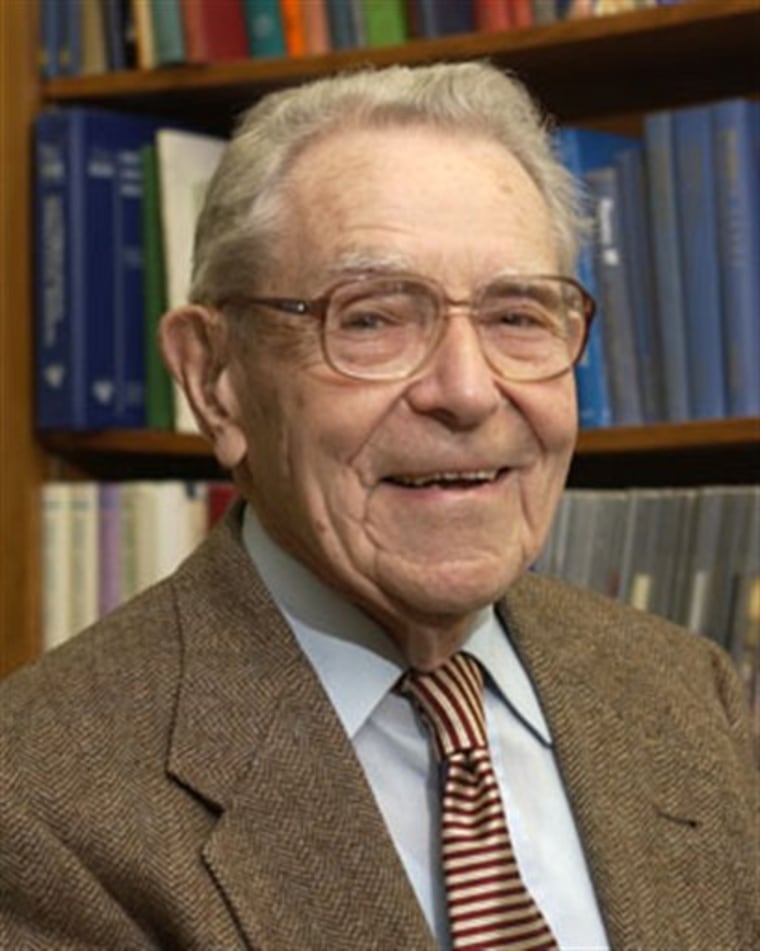Edwin Traisman, a food scientist who created the process for freezing McDonald's french fries and helped develop Cheez Whiz, has died at age 91.
Traisman died Tuesday at the University of Wisconsin Hospital and Clinics following a heart attack, said his granddaughter Jenna Greene, of Chevy Chase, Md.
Born in Chicago on Nov. 25, 1915, to Latvian immigrants, Traisman was the only of six siblings to graduate from high school. He earned a bachelor's degree in chemistry from the University of Illinois in 1937.
Traisman worked for Kraft Foods on the teams that created Cheez Whiz and individually packaged cheese slices in the 1950s. He became a division director of food research with responsibility for cheese and related projects.
Then Traisman wandered into a McDonald's restaurant near Chicago to ask about opening a franchise, said his wife of 44 years, Dorothy. He approached a man who was sweeping and asked for the manager. The man said the manager wasn't in, but he might be able to help.
"It turned out it was Mr. Ray Kroc himself," Dorothy Traisman said.
The two became friends, and Traisman opened the first McDonald's franchise in the Madison area in 1957. Within 14 years, he owned five restaurants.
One problem McDonald's Corp. had was producing french fries when Idaho potatoes were not in season, Greene said. Freezing uncooked potatoes ruined their texture. Traisman eventually developed and patented a process for partially cooking the fries and then freezing them.
"Then they could stay fresh and crispy," Greene said. "I think the secret was in how long you cook them before you freeze them."
He also broke ground by hiring women, violating the fast-food company's rules, his wife said.
"It almost caused him to lose the franchise," Dorothy Traisman said. "It was quite innovative."
Traisman sold his restaurants in the 1970s.
Desiring a return to research, he went as a program manager at the University of Wisconsin-Madison's Food Research Institute in 1970. In 1987, he helped initiate research on E. coli, which was then a little-known pathogen, according to a university news release. He was later inducted into the Wisconsin Meat Industry Hall of Fame.
Traisman officially retired from the institute in 1988 but continued to edit its newsletter until his death.
"He was a marvelous guy with a marvelous legacy," director Michael Pariza said.
Traisman, who lived in Monona, had five children.
